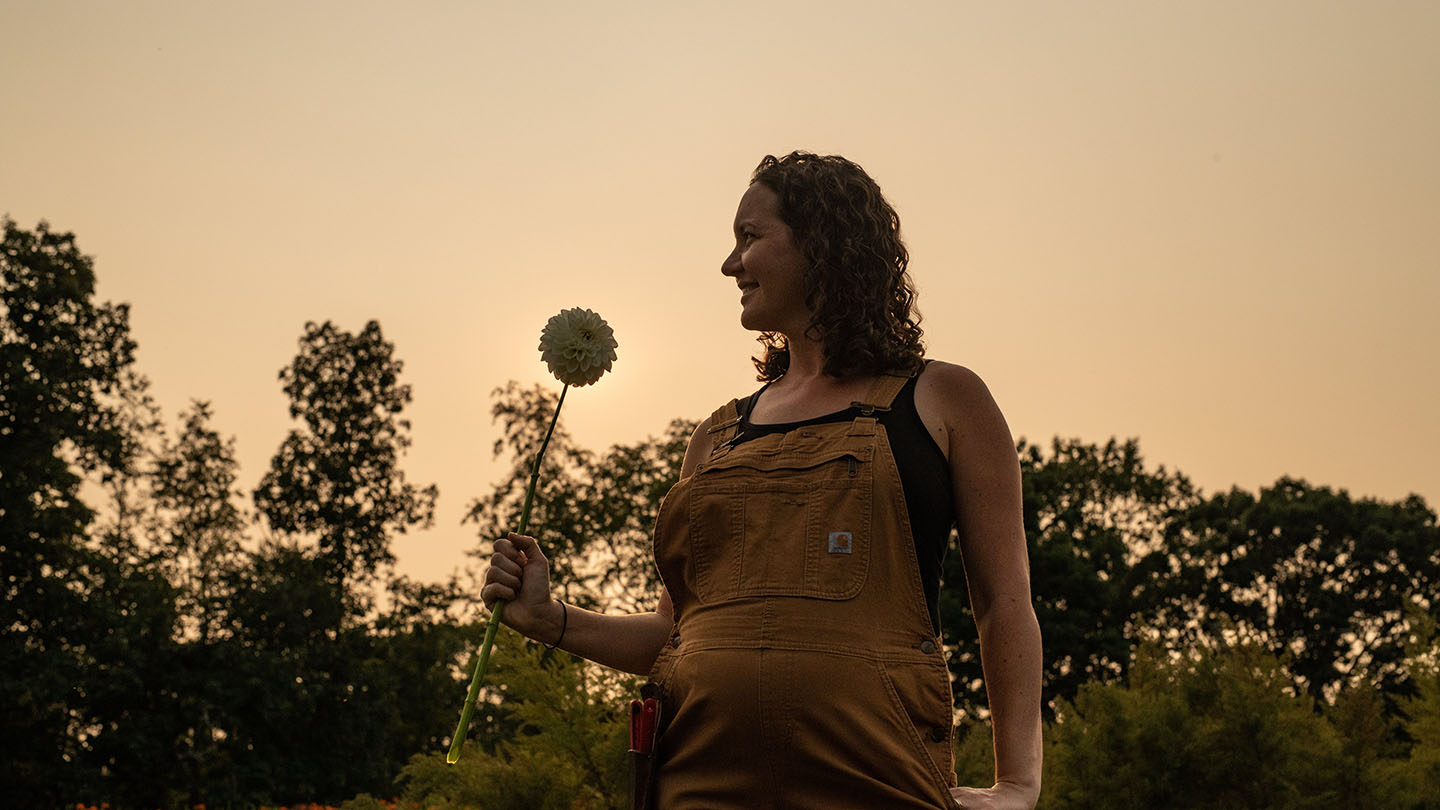From Field to Market
By Stella Katsipoutis-Varkanis
Although farms encircled Jenn (Bell) McAtee ’11 when she was a child living in the small yet busy countryside town of Purcellville, Va., they didn’t pique her interest. Her parents weren’t farmers, and she simply didn’t partake in her hometown’s longstanding agricultural tradition. In fact, she didn’t even like gardening.
Yet, her interests did an about-face when she arrived at Lafayette in 2007. Something spoke to McAtee’s heart when she found herself pursuing a geology degree, helping further the College’s composting initiative, and eventually co-founding LaFarm, the modern-day pillar of Lafayette’s sustainability efforts. It was then that McAtee decided to faithfully march toward a farming career—despite not having any previous experience in her arsenal.
Today—after years of diligently saving her money and honing her agricultural skills to realize her dream of running her own farming business—McAtee and her husband, Bryan McAtee ’11, successfully own and operate the 45-acre Holy Cow Flower Farm in picturesque Bangor, Pa. Patrons of the Easton Farmers’ Market (EFM) can purchase the couple’s farm-fresh blooms by the bundle every Saturday, from June through October of each year.
Here, McAtee talks about her life among the flowers and the road that led her there.
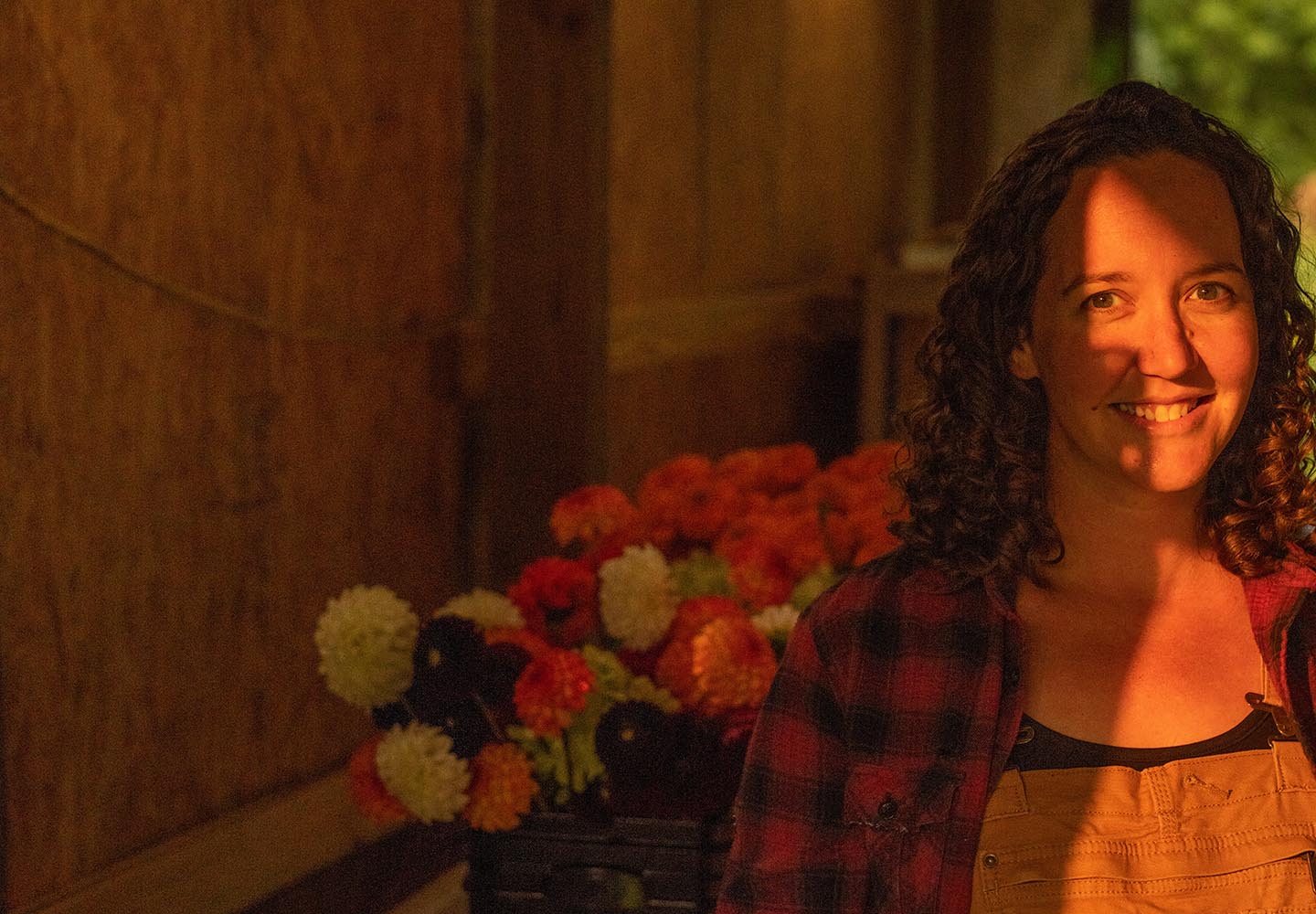
What got you into farming?
When I went to Lafayette, I was excited to be involved with LEAP [Lafayette Environmental Awareness and Protection]. My first week, I joined the compost team, where we were going to compost food waste from the dining halls. When we were writing a grant for the compost program, we visited Dickinson College because they previously won that grant. Their compost program was on their farm, and I was immediately excited to learn more about it and see if we could do something similar at Lafayette. That’s the moment my passion was sparked.
So, you discovered a new passion—and in the process helped found LaFarm, which provides sustainably grown food to the local community and gives students and professors space to conduct research. How did you make it happen?
When I was in the EXCEL program, helping write a grant for the compost program, we started talking about creating a garden on campus and dreaming of where it could be located. Eventually, some professors and I started writing a grant for the future garden, and it was decided it would be at Metzgar Fields. That’s how LaFarm evolved. We were going to be making a ton of compost, and we thought, ‘Where are we gonna put it? We should have a garden to complete the cycle from food waste, to compost, to freshly grown produce.’
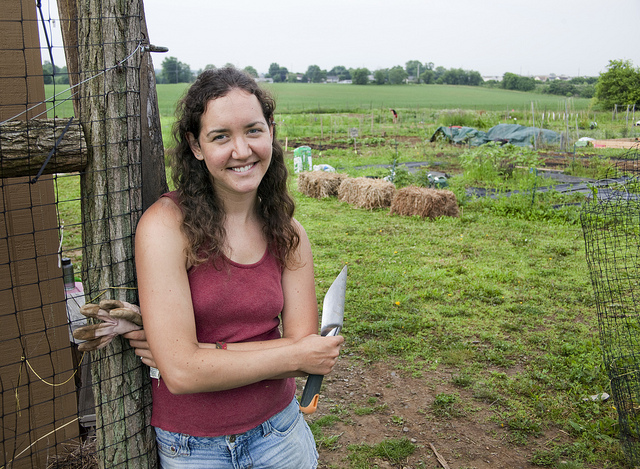
Jenn Bell McAtee ’11 at LaFarm as a student.
How did your LaFarm experience help you cultivate your farming skills?
I learned so much about leadership, starting and growing a project, being a part of something that was bigger than myself. Because I didn’t have a farming background, it gave me the opportunity to dive in and learn so much. After graduating from Lafayette, I ran LaFarm for a couple of years. During that time, I learned a lot about managing the different components of making a successful farm business.
What led you and Bryan to start Holy Cow Flower Farm together?
We met before Lafayette. When we came to the College, we were both involved with LEAP and the Lafayette Outdoors Society, so we grew together with our shared interest. For me, working at Lafayette was a wonderful foundation, and then I worked at a farm in Lehigh County for a year in a farmer training program. Next, I worked at a farm in Canada and learned a lot about starting and growing a business. Whereas Bryan, through his years of working and experience, learned more about mechanics and construction. When we were ready to settle down and start a farm, we felt like we had gained a lot of skills, but we certainly didn’t know everything. To a certain extent, you just kind of got to start somewhere and learn as you go.
What’s the story behind your farm’s name?
The property that we farm was a Hindu cow sanctuary before we purchased it in 2016. When we moved onto the farm, we felt it had a lot of special energy, and we wanted to pay homage to its previous life.
Reading the bio on your website, it seems like you and Bryan have a very balanced, Chip and Joanna Gaines-like relationship—you bring the creative vision, he brings the brawn, and your different perspectives come together to create something beautiful. Is that what the dynamic is like on the farm?
Totally. I am extremely passionate about farming. I love harvesting, making bouquets, and the artistic side of putting together different color combinations. Bryan is a project-oriented person. He loves to find a problem and solve it by building something or just figuring it out. Those things overwhelm me, but that’s his favorite. And he would rather not spend all day in the fields, but I love it. We are complementary in that way.
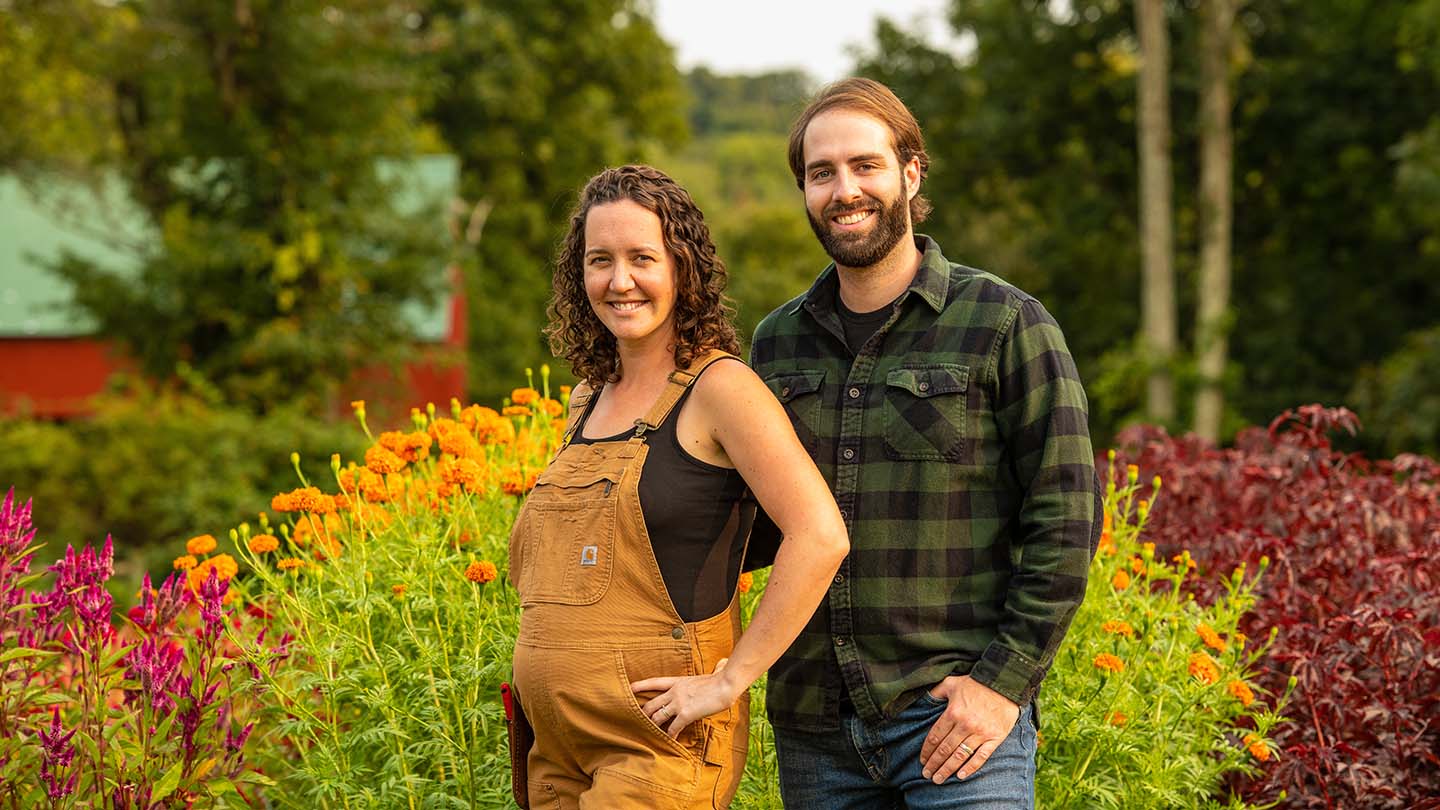
Is the farm your full-time job?
My full-time job is the farm. Bryan’s full-time job is off the farm. He works for Moonstone Environmental as an environmental consultant.
Why flowers?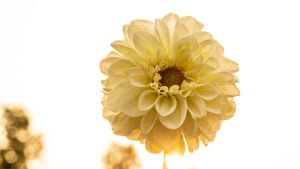
Most of my early farming experience was in vegetables. But when we moved onto our farm in 2016, I grew all of the produce and flowers for our wedding, and that was when I realized how much I loved growing flowers. When we were accepted into the Monroe Farmers’ Market in Stroudsburg in 2017, there were already so many wonderful established vegetable farms, so I thought it would be hard to get started in that market. A lot of farmers weren’t growing flowers; if they were, it was a secondary thing. So, I thought, maybe I can focus on this, do a good job, and bring beauty to the area.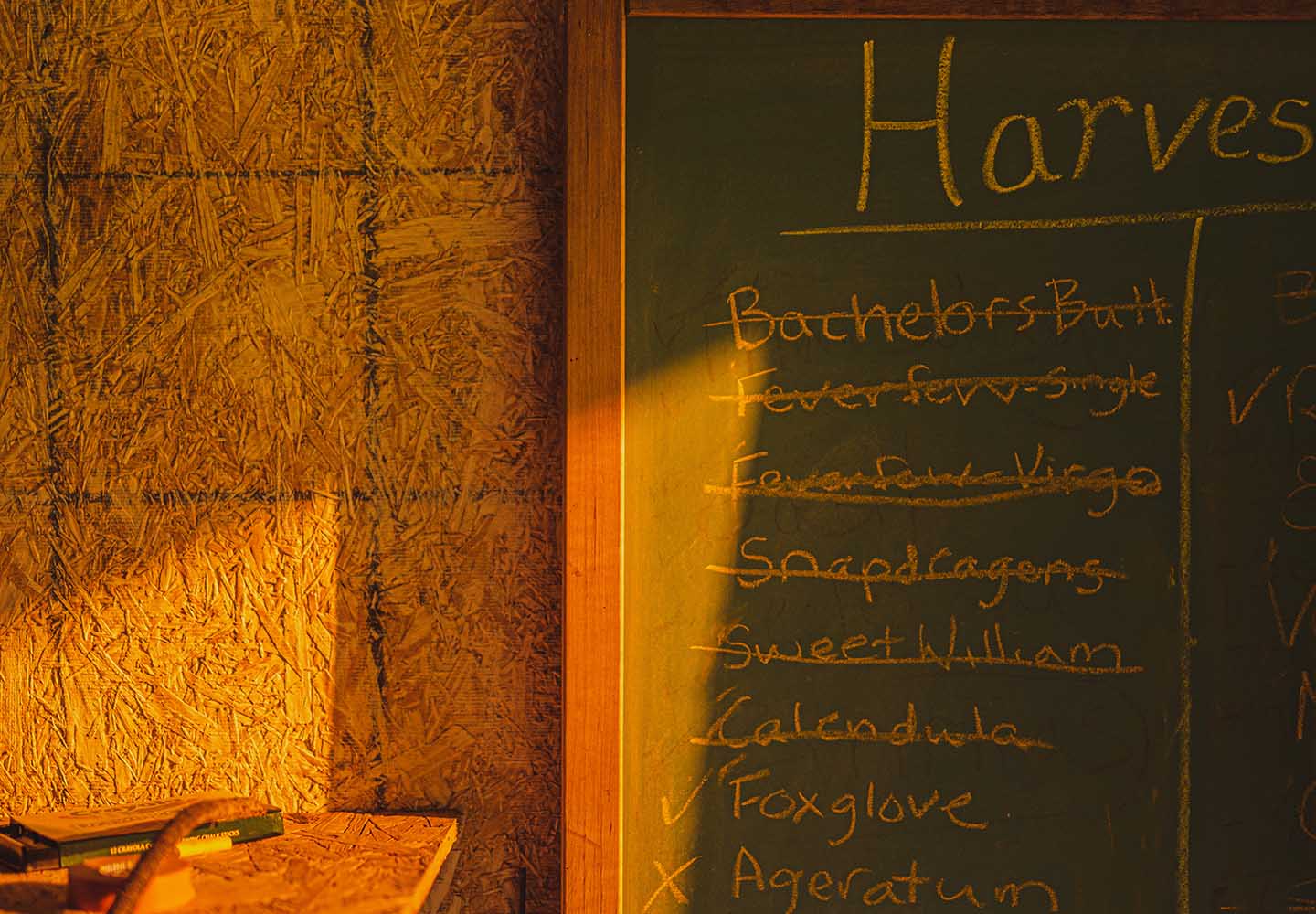
After you started your dream farm, you were invited to sell at EFM in 2019. What do you love about selling there?
EFM is America’s longest continuous running open-air farmers’ market in the country, and we are grateful to be a part of it. Since 1752—over two and a half centuries—farmers have been bringing their wares to Easton’s Center Square. (It’s temporarily moved to Scott Park due to COVID-19 safety measures.) Today, the market is full of local farmers, bakers, and makers. It makes a wonderful morning excursion for tasty local finds. As a Lafayette student, I used to go with friends to shop and enjoy the downtown community atmosphere. Today, it’s fun to be on the other side and chat with students and customers who visit our stand. 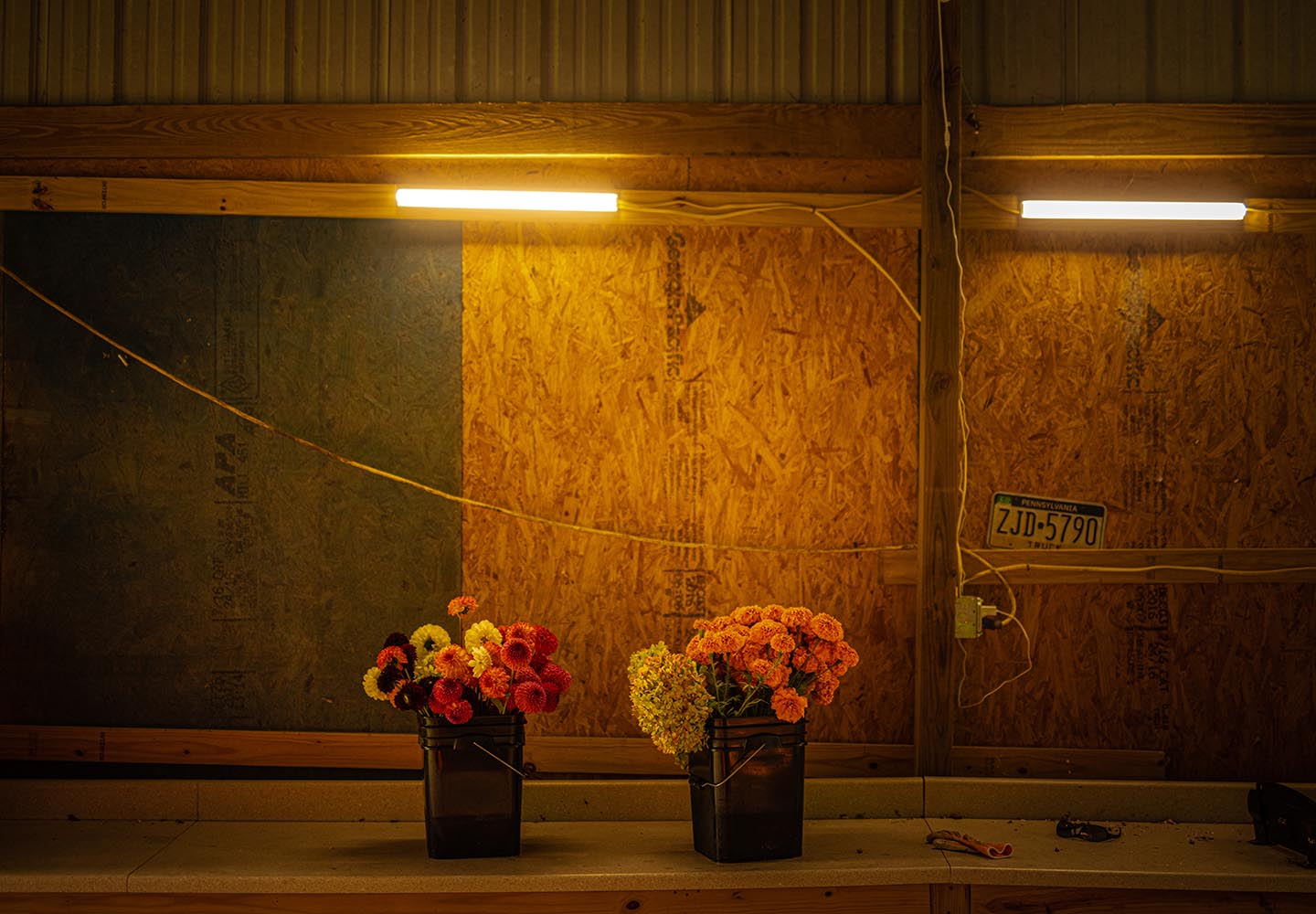
What’s the difference between someone buying a bouquet of flowers at, say, the supermarket and someone buying one of your arrangements at EFM?
Most flowers at the grocery store or a florist come from South America, and there are a lot of unsustainable things about those flowers—the chemicals they use to grow and preserve them, and the carbon footprint of the transportation involved. You think about it with food because you’re ingesting it, but it’s just as important to lessen the impact you have on the planet with the flowers you’re putting in your home.
Sustainability is very important and personal to me, and one of my priorities is to have as little footprint on the planet as I can. We use chickens in our fields to fertilize. We don’t use any chemicals, herbicides, or pesticides. Obviously, it’s a small trip from our farm in Bangor to Easton, so there’s very little transportation involved. The flowers are cut a few days before we bring them to market, so they’re super fresh. Everybody says they look vibrant and alive. We take pride in how long our flowers last and how beautiful they are.
Do you sell lots of them at EFM?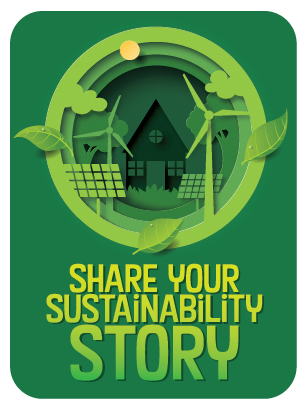
Our family is in the high-risk category, so we weren’t sure about going to market this year because of COVID-19. But once we saw the precautions everybody was taking—wearing masks and staying distant—we felt comfortable going. We’re glad we did, because we’ve had a wonderful year. There’s a good demand for local flowers in Lehigh Valley, and we usually sell out before the market shuts down. As much as we can grow, we’ve been selling.
Is there a particular kind of flower your customers seek out the most?
In the fall, everyone’s favorite is the big, luscious dahlias. People come back for them all the time.
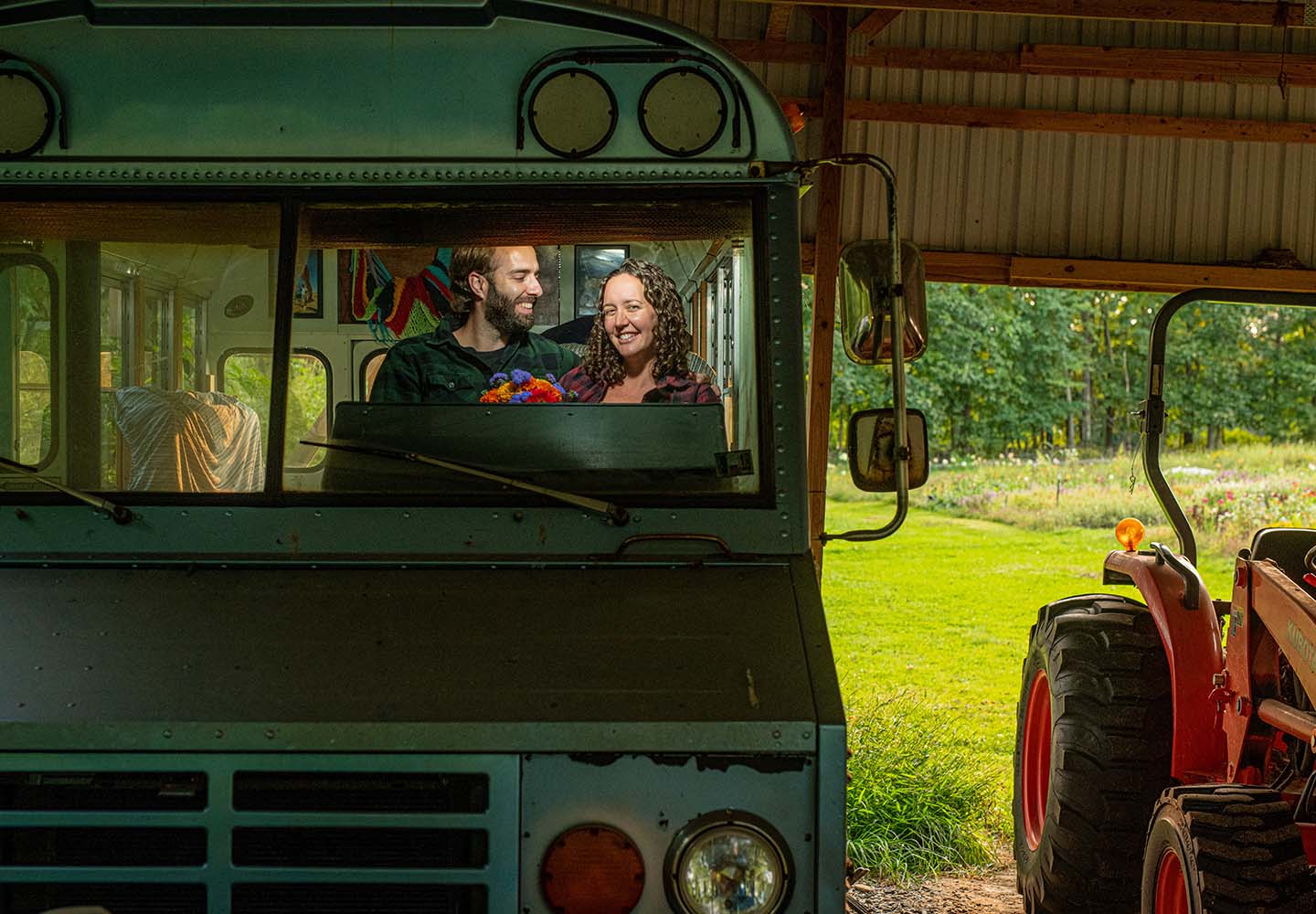
Do you have anything big planned for the future of the farm?
People are always sad when we stop selling. We would love to extend our season on either end. Right now, we have a propagation greenhouse that we start our seeds in. Next year, we’ll be building two high tunnels, which are like a greenhouse, but without a heater. I usually start in June, so that’ll extend our season into May, when the market first starts. Then hopefully I’ll be able to grow some things in October and November.
What are you up to now that your market season is over for the year?
I plant tulips and other bulbs in the fall for the next year. I also clean up the garden, and that takes me through November. The past couple of years, I’ve sold dried arrangements at the market in December. In January, I’m planning for next year, and I start planting seeds in the greenhouse again in February. I’m working every month getting ready for the market. Usually, I sell at the market through October. This year, I’m pregnant, so I ended a little early.
Congratulations! Are you hoping your little one will carry on your new farming tradition?
I would love for him to find some passion in farming and see the value in it. It’ll be interesting having him grow up with it, because that was not at all my or my husband’s experiences. Whether or not he wants to farm in his career, I hope he enjoys being outside and growing things from the earth. It’s a special process.